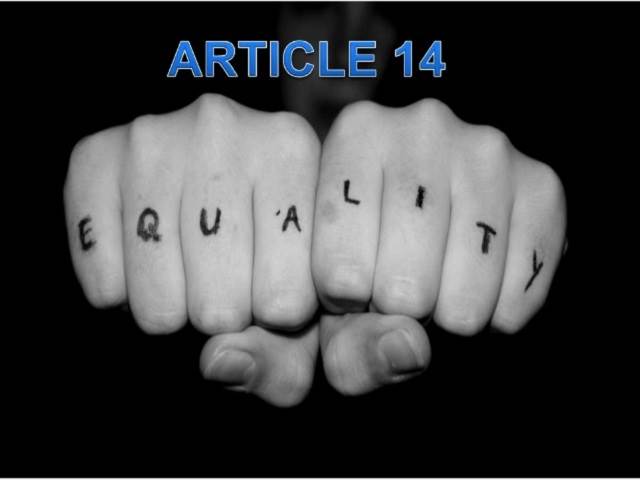Article 14 depicts the Equality before Law in the Indian Constitution. It states that
- 'The state does not deny to any person equality before the law or the equal protection of the laws within The territory of India.' Also, it sustains the protection & prohibition of discrimination on grounds of religion, race, caste, sex, or place of birth.
- The phrase “equality to the law finds a place in all written constitutions that guarantees fundamental rights. “All citizens irrespective of birth, religion, sex, or race are equal before the law; that is to say, there shall not be any arbitrary discrimination between one citizen or class of citizens and another.”
- “All citizens shall, as human persons he held equal before the law.” “All inhabitants of the republic are assured equality before the laws.”

Picture courtesy: Jagran Josh
Since it is a constitutional law, it is justified for every Indian. However,
it is still not the same for all the citizens of the country and possesses special accordance in the Constitution for them. It clearly mentions that the principle of
‘equality’ doesn’t mean ‘uniformity’ for all the citizens. There could be different rules for the same law, pertaining to the situation. Thus, it indicates that all people under similar circumstances shall be treated equally under Article 14. The rule may vary depending upon the situation.
Hence, there are some exclusions for the law too.
1. No criminal proceedings whatsoever shall be instituted or continued against the President, or the Governor of a State, in any court during his term of office. To confront these people, their service should first be canceled and then any proceedings should be done against them.
2. The equal protection of the law guaranteed by article 14 does not mean that all laws must be general in character. There is no universal application of the law mentioned in the Constitution.
3. The diverse needs of different classes of persons require separate treatment. From the very nature of society, there should be different places and the legislature controls.
4. The best interest of the safety and security of the state should be kept in mind before any proceeding to whomsoever it may concern.
5. There are separate provisions for women, children, SC, ST, and the disabled under the same law. Meaning, if any of them commits a heinous crime, or surpasses any law then the penalty will be there but separate from the others.